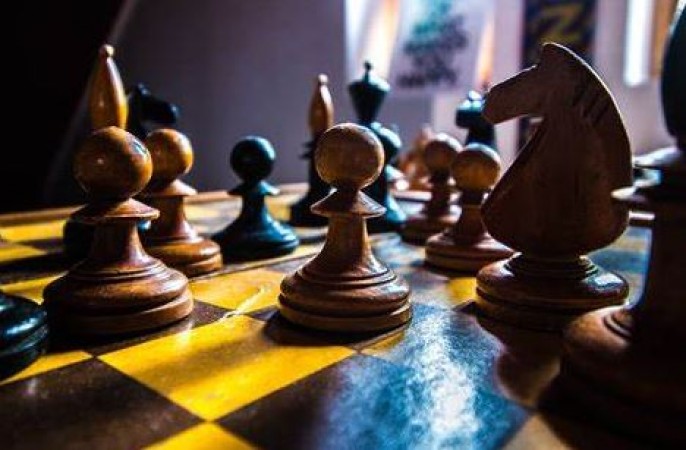
Chess, often regarded as the game of kings, has captivated minds for centuries. Its strategic depth and complexity have made it a popular pastime and an intellectual pursuit. The statement that "there are more possible iterations of a game of chess than there are atoms in the known universe" might sound astonishing, and rightfully so. In this article, we will explore the truth behind this mind-boggling concept and its implications.
Understanding Chess and Its Complexity
The Rules of Chess
Chess is a two-player board game played on an 8x8 grid called a chessboard. Each player controls an army of sixteen pieces, including kings, queens, bishops, knights, rooks, and pawns. The objective is to checkmate the opponent's king, putting it in a position where it cannot escape capture.
The Chessboard and Pieces
The chessboard's checkered pattern and the distinct movement of each piece add to the complexity of the game. Players must strategize and plan their moves carefully to outwit their opponents.
The Concept of Iterations in Chess
Defining Iterations
In chess, an "iteration" refers to a unique sequence of moves made by both players until the game concludes. Each turn opens up numerous possibilities, branching out like a vast tree.
Calculating Possible Iterations in Chess
To comprehend the number of possible iterations in chess, one must consider the average number of moves in a game and the number of legal moves available at each turn. The result is an astronomical figure that surpasses human comprehension.
The Vastness of the Known Universe
Counting Atoms in the Universe
The universe is vast, containing billions of galaxies, each with billions of stars. Atoms, the building blocks of matter, are abundant, and their quantity seems beyond imagination.
The Incomprehensible Scale
The sheer number of atoms in the universe is staggering. Yet, when compared to the possible iterations in chess, it pales in comparison, demonstrating the immense complexity of the game.
Comparing Iterations and Atoms
Unimaginable Numbers
Attempting to grasp the number of possible chess iterations is futile for the human mind. It is an astronomical value with more zeros than we can mentally fathom.
Grasping the Enormity
To put it into perspective, imagine every atom in the universe being a chess game, and each atom has its own universe with billions of galaxies, each containing billions of stars. Such a comparison only begins to illustrate the vastness of chess possibilities.
The Significance of This Comparison
Implications for Complexity
The comparison highlights the astonishing complexity of chess, making it one of the most intricate games ever devised by humanity.
The Limitations of Human Understanding
Chess's complexity challenges our understanding of the world, reminding us of the vastness of the unexplored realms of knowledge.
The Role of Computers in Analyzing Chess
Advancements in Chess Software
Computers have played an essential role in analyzing chess positions and developing strategies. Chess engines have become remarkably powerful in recent years.
Artificial Intelligence and Chess
The integration of artificial intelligence in chess programs has taken the game to new heights, pushing the boundaries of what was once thought possible.
The Beauty of Chess Complexity
Intellectual Appeal
The allure of chess lies in its intricate depth, attracting intellectuals and enthusiasts alike who seek mental stimulation and challenge.
Cultivating Strategic Thinking
Playing chess nurtures strategic thinking, problem-solving, and long-term planning, benefiting players both on and off the board.
The Impact of Chess on Human Knowledge
Contributions to Mathematics
Chess has made significant contributions to mathematics, particularly in the field of combinatorics, where permutations and combinations have been extensively studied.
Chess as a Teaching Tool
Its complexity has also made chess a valuable educational tool, fostering cognitive skills, discipline, and creativity in young minds.
Addressing Misconceptions and Criticisms
Seeing Beyond the Complexity
While chess is undeniably complex, it offers a world of beauty and intellectual growth that should not be overshadowed by its intricacies.
Appreciating the Value of Chess
Understanding the immense possibilities in chess enriches our appreciation for the game and its impact on human development.
In conclusion, the statement that "there are more possible iterations of a game of chess than there are atoms in the known universe" is a testament to the game's unparalleled complexity. Chess serves as a remarkable metaphor for the boundless potential of human intellect and a reminder of the vast mysteries that lie beyond our comprehension. Embracing the beauty of chess and its complexity can lead to a deeper understanding of the world around us and the universe beyond.
Hero to finally set afloat its all new Xtreme 200S 4V to its Fullest
The Periodic Table of Elements: The Foundation of Chemistry and Atomic Structure